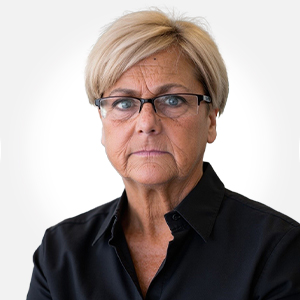-
Property & Casualty
Property & Casualty Overview

Property & Casualty
We offer a full range of reinsurance products and the expertise of our talented reinsurance team.
Expertise
Publication
Biometric Information Privacy – Statutes, Claims and Litigation [Update]
Publication
Inflation – What’s Next for the Insurance Industry and the Policyholders it Serves?
Publication
Human Activity Generates Carbon and Warms the Atmosphere. Is Human Ingenuity Part of the Solution?
Publication
Illinois Changes Stance on Construction Defect Claims – The Trend Continues
Publication
Generative Artificial Intelligence in Insurance – Four Aspects of the Current Debate
Publication
Battered Umbrella – A Market in Urgent Need of Fixing -
Life & Health
Life & Health Overview

Life & Health
We offer a full range of reinsurance products and the expertise of our talented reinsurance team.

Publication
Underwriting High Net Worth Foreign Nationals – Considerations for U.S. Life Insurance Companies
Publication
Group Term Life Rate & Risk Management – Results of 2023 U.S. Survey
Publication
Trend Spotting on the Accelerated Underwriting Journey
Publication
All in a Day’s Work – The Impact of Non-Medical Factors in Disability Claims U.S. Industry Events
U.S. Industry Events
Publication
Marginal Gains in the Medicare Supplement Market -
Knowledge Center
Knowledge Center Overview

Knowledge Center
Our global experts share their insights on insurance industry topics.
Trending Topics -
About Us
About Us OverviewCorporate Information

Meet Gen Re
Gen Re delivers reinsurance solutions to the Life & Health and Property & Casualty insurance industries.
- Careers Careers
A Mental Health Claims Dialogue

May 26, 2021
Patricia Bailer
English
Español
Worldwide, mental health claims are the most complex to manage, and claim durations are often prolonged. Before the COVID‑19 pandemic, mental health claims were one of the top three causes of impairment seen in Disability claims. In some crises, there can be an outpouring of support and connectedness. In this pandemic, however, people who were in great need of connectedness were often left isolated – at all ages – despite unprecedented government aid and support in some countries.
With this in mind, Gen Re recently hosted a Mental Health Think Tank to assess the pandemic’s impact on mental health claims worldwide, and to prioritize Gen Re’s efforts in support of the claims handling. We gathered seasoned claims and clinical experts from around the globe, and I’d like to share with you why we did.
The Pandemic’s Impact – Variations Between Different Generations and Cultures
We know disasters disrupt individual coping strategies, routines, and support systems. We also know the impact on mental health differs from generation to generation and from culture to culture. Consider, for example, what the following illustrates about the different generational cohorts in the U.S.
- Gen X, Millennials, and Gen Z – These younger adults are not as good as the older generations at harnessing coping strategies to ride out the choppy waters of the pandemic. Their stressors derive from employment and income uncertainties, costly tuition repayment plans, and isolation at an age when they feel the need to interact and connect with other people. Rising rates of anxiety, depression and increased suicidal ideation are emerging trends in this population, and the high numbers of unemployed graduates and increased suicide rates in those under age 30 are alarming.
One characteristic Claims Managers could tap into is younger adults tend to be more comfortable talking about mental health and illness, whereas with other generations and some cultures, mental illness carries stigma, shame, and prejudice. - Baby Boomers – Some Boomers are coping well; others are not. For a Boomer with an underlying mental health condition, the stress of isolation can exacerbate his or her inability to cope. This generation seems to experience a stronger physiological impact to stress, and the pandemic’s not immune. Being withdrawn and in isolation may also be preferred by this generation, which can become problematic.
While these examples are from the U.S., every society around the world influences mental health in vastly different ways – from perceptions of health and illness, to coping styles, treatment-seeking patterns, history, bias, stereotyping, stigma, and discrimination. It’s important to be aware of these differences in managing claims.
Treatment Challenges
Although virtual access to mental health treatment now exists, not everyone has the means to take advantage of this technological advancement, especially in rural areas. Even when a person can use an alternative to in‑person mental health treatment like telemedicine, computer screens mask some of the telling signs that are easily missed. Pre‑pandemic, it was easier for healthcare workers, friends and family to notice signs and symptoms of potential mental health issues and intervene.
Globally, many people requiring care are experiencing long delays to get into treatment with a mental health professional. During the wait, they are often treated by General Practitioners and may be inadequately diagnosed and treated. We know early intervention is key:
- If mental health treatment occurs within the first four weeks of impairment, four-out-of-five individuals likely will return to work.
- If a person needs to wait six months to get into care with a mental health provider, the outcome dramatically changes, and only one-in-five may return to work.
- If the wait is between one and two years, almost none will return to work.
- We know during the pandemic, four‑in‑10 adults reported symptoms of anxiety or depressive disorder, up from one‑in‑10 just a year earlier.
The medical profession itself is a demanding occupation starting with training in medical school. Even before the pandemic, it was common for a medical class to be lost due to student suicide every year.1 Given the occupational hazards during the pandemic, which often led to burnout and mental exhaustion, it’s anticipated an exodus of physicians and nurses – the ones who made it through the demands of medical school and have been working in their professions for a while – may occur.
In addition to all these vulnerabilities, working in claims has significant challenges as well. Day in and day out, front-line claims resources work with people who relate horrific stories, and the experience makes active listening difficult, even at arm’s length.
Anticipating Mental Health Claims
Unfortunately, the global mental health situation has worsened on a number of fronts since the pandemic. Anxiety and depression were already the most common mental illnesses globally, affecting 548 million people (264 million with depression; 284 million with anxiety2). Remember, during the pandemic four‑in‑10 adults reported symptoms of anxiety or depressive disorder, up from one‑in‑10 just a year earlier.
During the pandemic, we’ve also seen an increase in alcohol and substance abuse disorders, as well as increased suicidal ideation. Opioid overdose fatalities are up 11.4% year-over-year.3 The numbers are also up for Post-Traumatic Stress Disorder, and although burnout is a syndrome, we’re fielding inquiries about it as well.
With all these factors in mind, the Think Tank turned to identifying what Gen Re could do on the claims front to support our clients and our own staff.
Skills and Tools Are Needed to Adequately Manage Mental Health Claims
The Mental Health Think Tank identified the need to ensure that upskilling claims professionals is not overlooked as it relates to the unique and troubling mental health problems due to COVID, including the following:
- Differentiating distress due to loneliness and isolation versus feeling overwhelmed by significant mental illness impairments
- Determining how best to address symptomatology for return-to-work potential
- Distinguishing brain fog from stress, insomnia, hormonal changes, diet, dehydration, diabetes, and other medical conditions
- Identifying types of fatigue (In aviation, there are three types: transient, cumulative, and circadian.) Is the cause social fatigue, emotional fatigue, physical fatigue, pain fatigue, mental fatigue, or chronic illness fatigue?
Key Takeaways to Support Client Efforts to Help Claimants Achieve Recovery and Optimize Return to Work
- Appropriate Care – Getting claimants into appropriate care and treatment quickly (even with a General Practitioner or Primary Care Physician) is key to their recovery, especially as a long wait might complicate that recovery.
- Escalating Shortages – Gen Re recommends focus on the escalating shortages of qualified mental health professionals, including the role of Physician Assistants who specialize in psychiatric mental health work. For example, is there a role for Medical Directors to perform an early intervention outreach effort to treating providers? Positive engagement early on with a treating provider may help to ensure one‑in‑four workers are able to return to work.
- Upskill Staff on the important aspects of managing mental health claims by increasing the awareness of the full spectrum of mental health conditions and other manifestations of psychiatric distress. This asks our staff to be subject matter experts within four key conditions and syndrome topics: Depression, Anxiety, Post Traumatic Stress Disorder (PTSD), and Substance and Alcohol abuse, along with burnout syndrome. It requires staying up to date on new treatment regimens, including technology breakthroughs such as virtual reality for use with PTSD, self-guided Cognitive Behavioral Therapy (CBT), and building and sharing best practice work.
As thought leaders, we delved into the industries most affected by the pandemic to ensure our processes and tools are robust. We know the world of work is ever-changing and our Think Tank discussion reinforced it. Occupations within the medical market (e.g., physicians and dentists), middle market (executives, self-employed business owners), and blue collar/grey market (e.g., plumbers, electricians, etc.) are but a few we re‑evaluated. For example, the medical market’s use of robotics is changing the way some surgical procedures are performed. It’s key for claims professionals to stay up to date on the ever-changing occupational landscape given technology and medical advances to properly manage claims. Our Think Tank discussion reinforced this need.
Watch for more articles about mental health focusing on the four conditions mentioned (Depression, Anxiety, PTSD, and Alcohol and Substance Abuse Disorders) – as well as the burnout syndrome. In the meantime, I hope everyone reading this is also focusing on self-care. Ensuring our own health enables us to be at our best in assisting each other through these unprecedented times.
Endnotes
- https://www.kevinmd.com/blog/2015/11/we-lose-a-medical-school-full-of-physicians-every-year-to-suicide-an-interview-with-dr-pamela-wible.html
- https://ourworldindata.org/mental-health
- https://www.advisory.com/en/daily-briefing/2020/07/17/overdose





